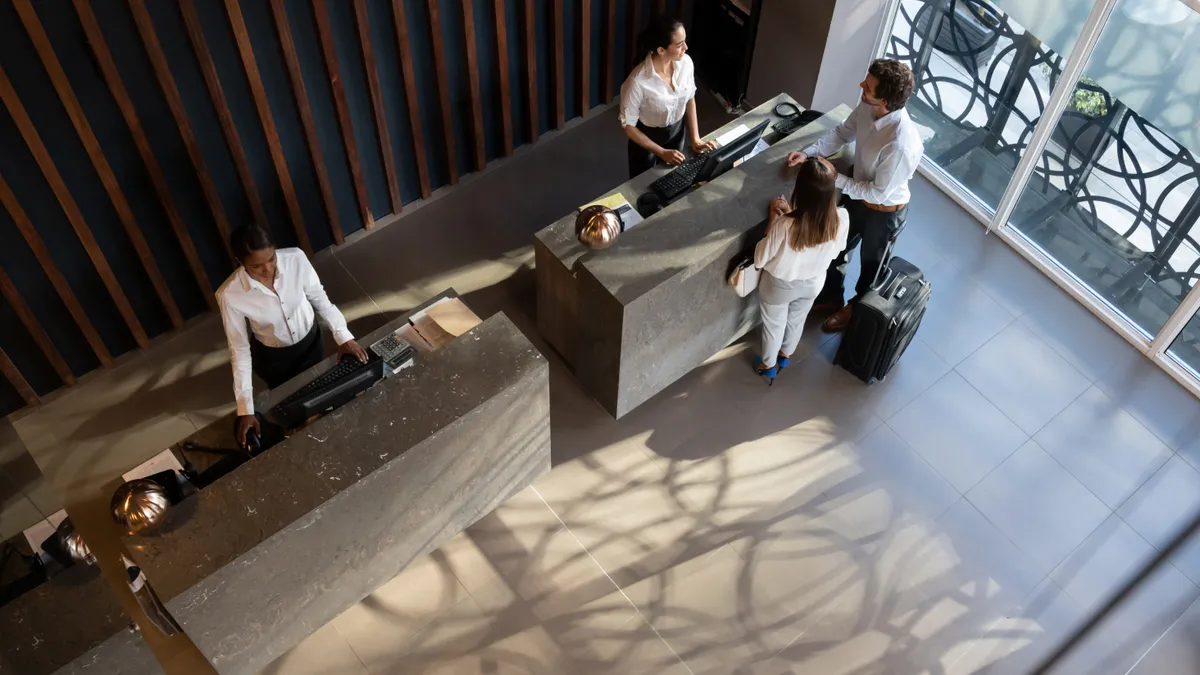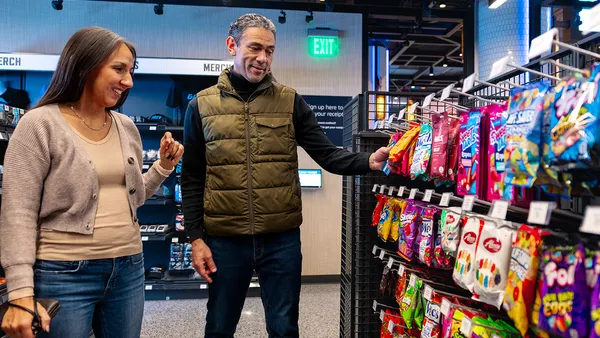Dive Brief:
- Hospitality stakeholders understand the value of upgrading their technology to cloud-based solutions and automated processes, but are slow to make the implementations due in part to financial reasons and legacy tech integration issues, according to a PwC survey titled “Hotel industry digital transformation: The current state of play.”
- Many interviewees expressed confidence in the potential of AI and machine learning to benefit the hospitality industry, citing improved labor productivity and opportunities for cost savings, while some remain cautiously optimistic, PwC reported.
- Investment in hospitality technology not only requires financial resources, but also staff time and training, data security and a standard integration approach. And with the overarching ethos that hotels are a “people industry,” machines can still be viewed as an uninvited guest.
Dive Insight:
An investment in new tech — with the latest bells and whistles — is generally considered a wise decision for any business. But making it a reality isn’t that easy, especially within a complex structure like the hotel industry.
Through its survey, a collaboration with the Jonathan M. Tisch Center of Hospitality at New York University’s School of Professional Studies and its HI Hub Experiential Learning Lab, PwC gained insight into hospitality stakeholders’ digital successes as well as the challenges that the industry faces when it comes to upgrading legacy systems. The examination focused on five areas: automation, integration, data and analytics, artificial intelligence and technology investments.
The benefits to updating outdated tech systems are clear. According to the survey, one brand recorded an 85% reduction in billing cycle processing time after modernizing its loyalty program, reducing what used to take up to 48 hours down to 7.
But stakeholders continue to struggle with aligning this tech investment with overall strategy. And in a complex business ecosystem that includes brands, owners and operators, all striving to meet similar but different goals, it’s even more difficult to get the buy-in. Plus, skilled workers who know how to use the tech are needed.
When it comes to the buzziest and perhaps most controversial technology at the moment — AI and machine learning — the interviewees appear to be proceeding with caution.
For instance, according to the survey, one hotel brand is investing in AI algorithms to make decisions on hotel room allocation, conference rooms and restaurant pricing, in addition to estimating demand and determining room pricing with models that incorporate multiple variables such as weather and sporting events.
The interviewees added that AI should be “used to improve human connection; not replace it.”










